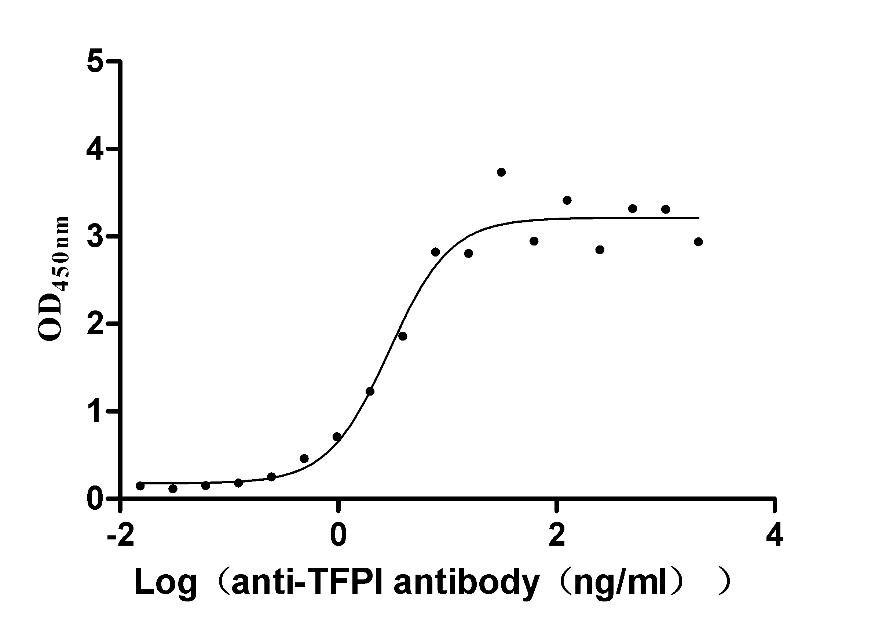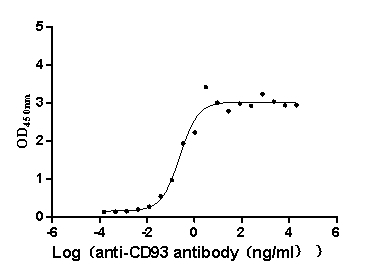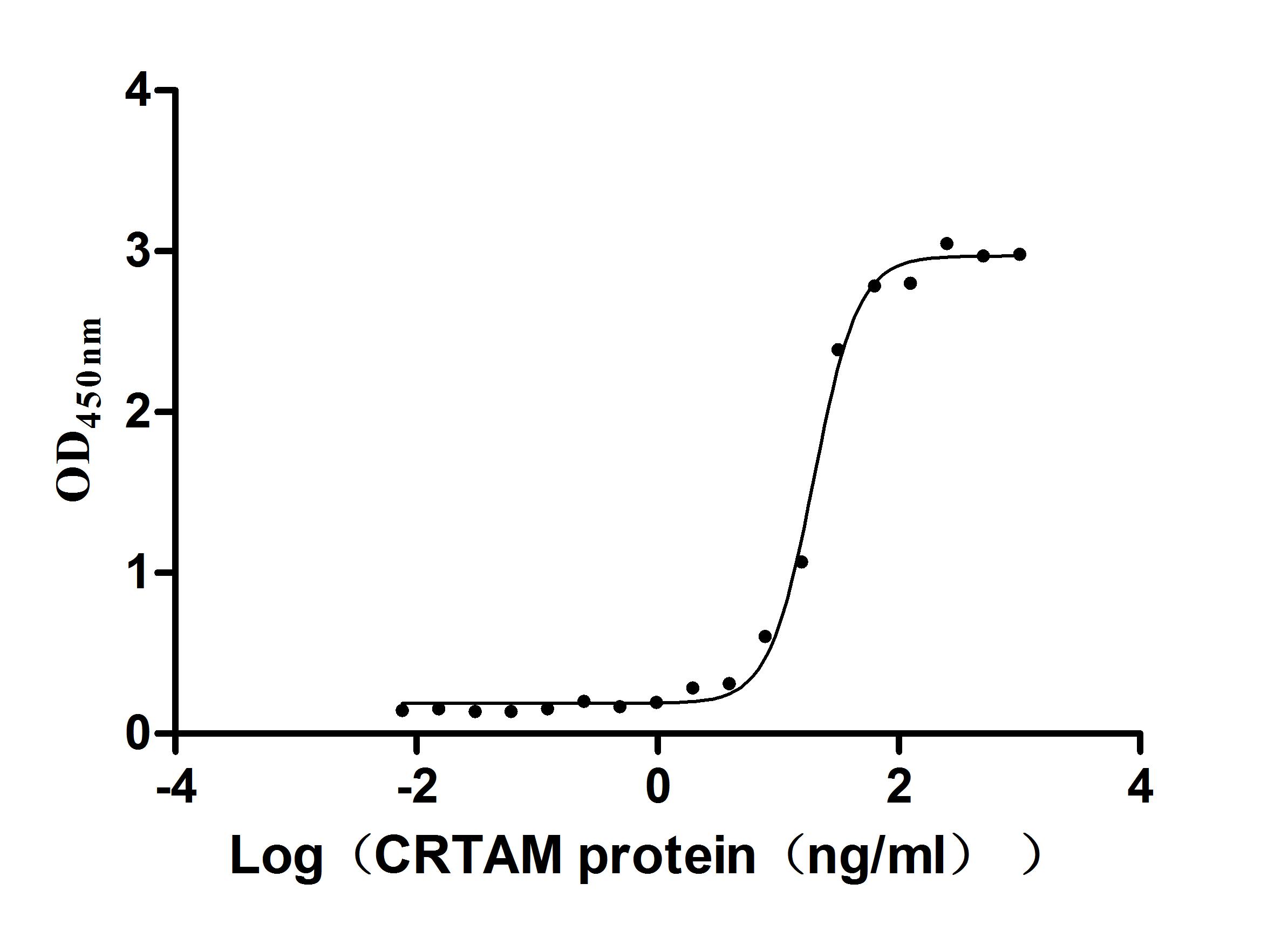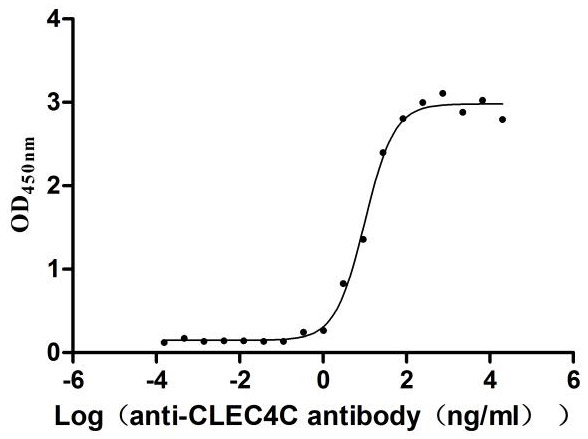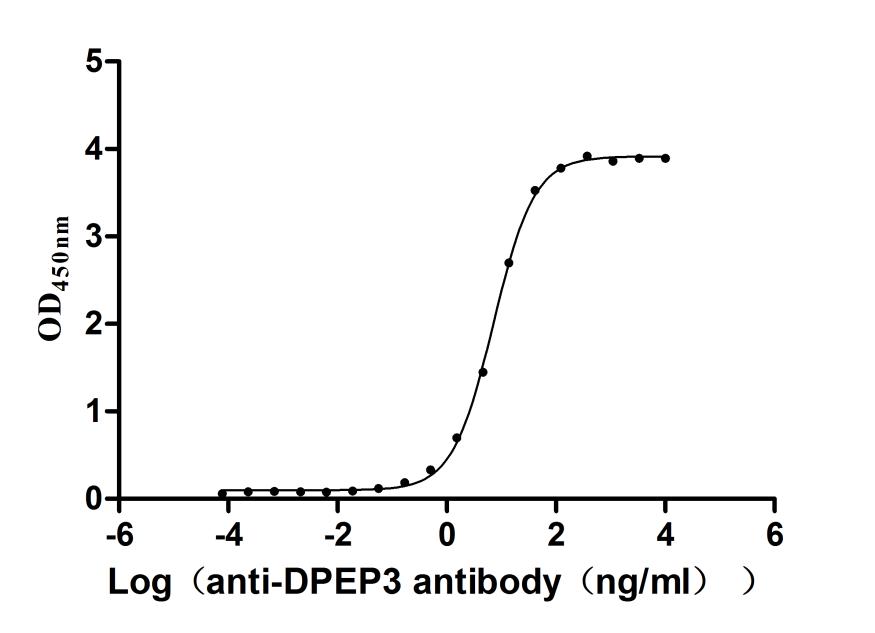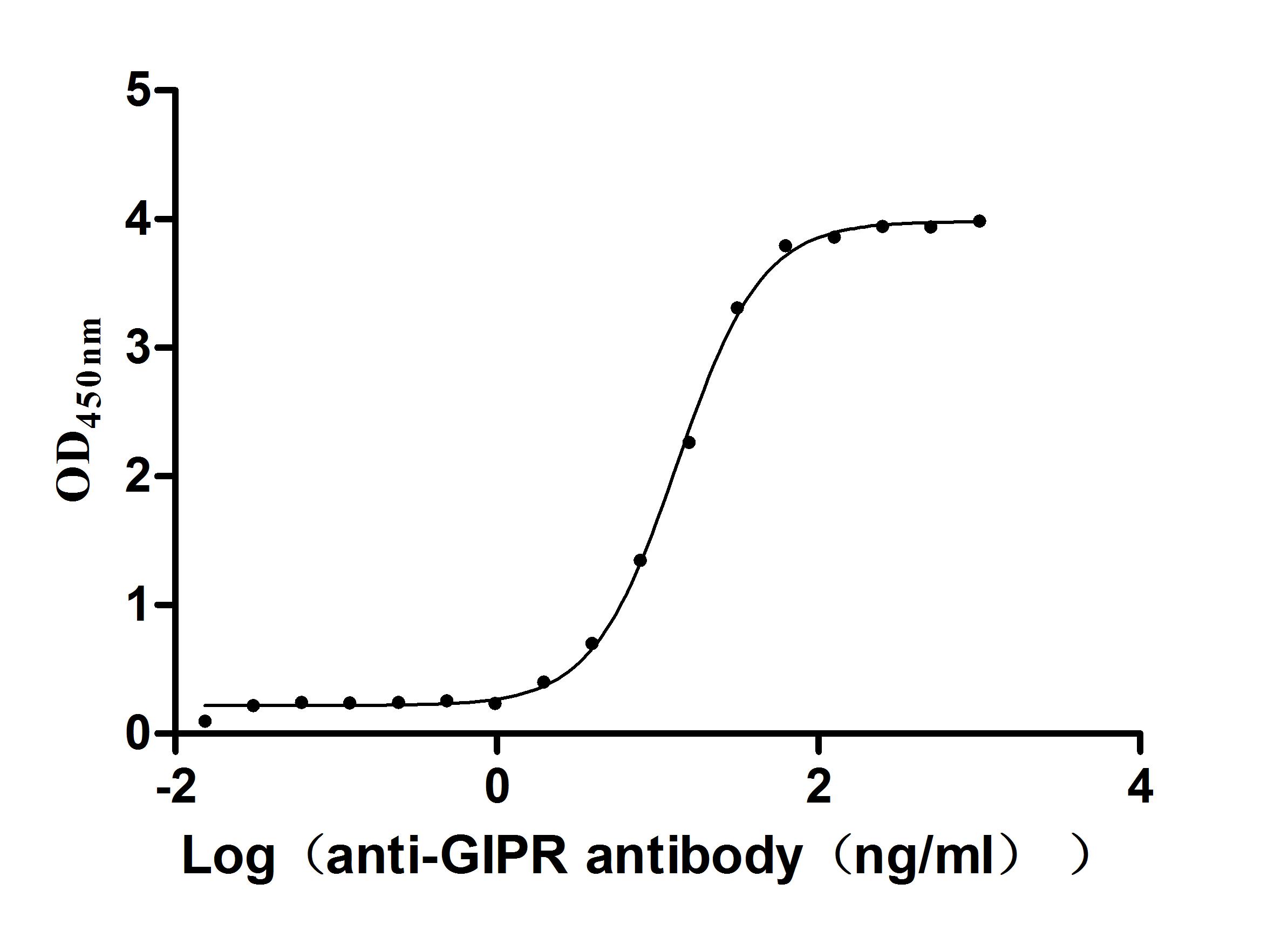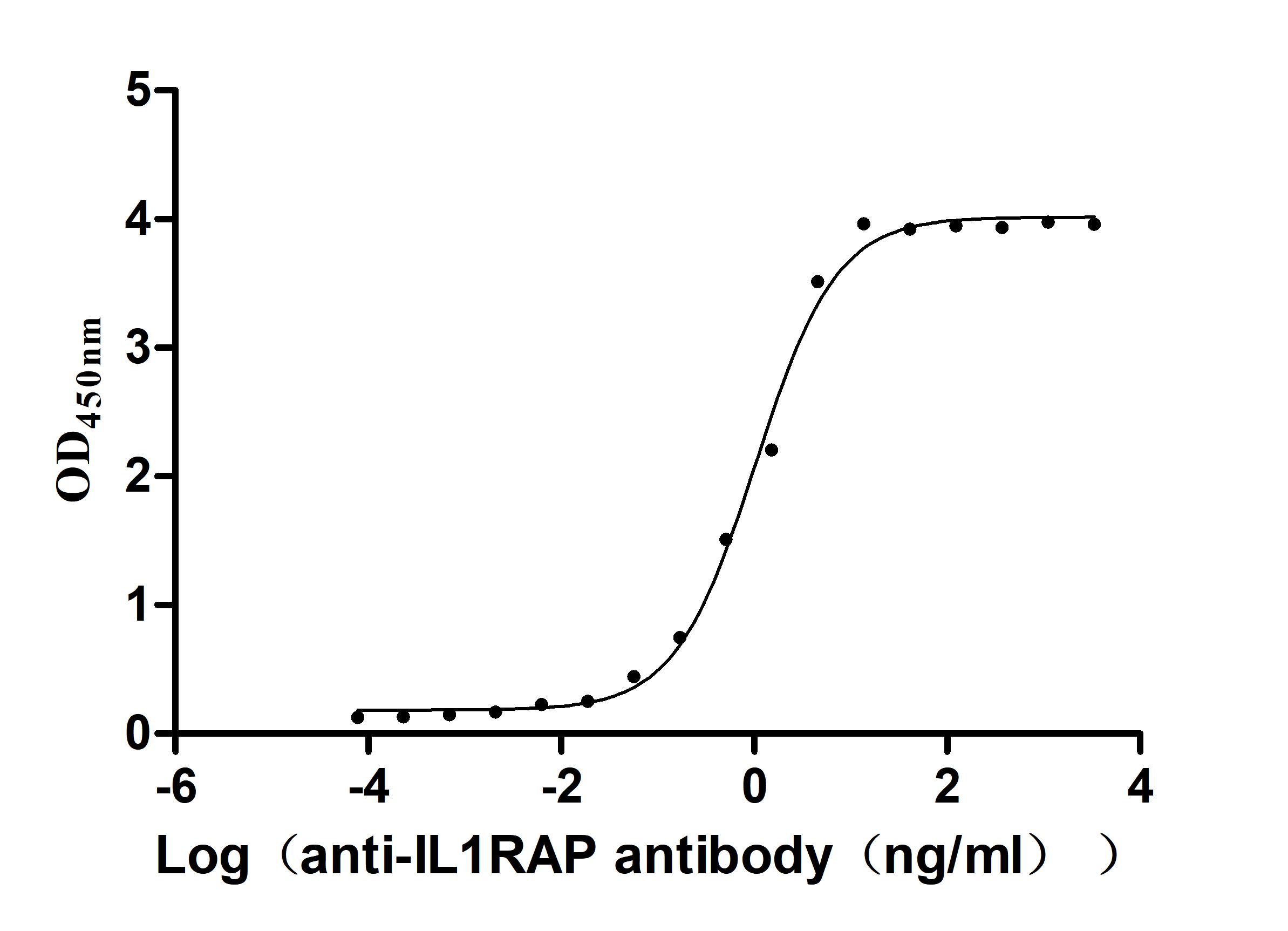Recombinant Mouse Hypoxanthine-guanine phosphoribosyltransferase (Hprt1)
-
货号:CSB-YP010706MO
-
规格:
-
来源:Yeast
-
其他:
-
货号:CSB-EP010706MO
-
规格:
-
来源:E.coli
-
其他:
-
货号:CSB-EP010706MO-B
-
规格:
-
来源:E.coli
-
共轭:Avi-tag Biotinylated
E. coli biotin ligase (BirA) is highly specific in covalently attaching biotin to the 15 amino acid AviTag peptide. This recombinant protein was biotinylated in vivo by AviTag-BirA technology, which method is BriA catalyzes amide linkage between the biotin and the specific lysine of the AviTag.
-
其他:
-
货号:CSB-BP010706MO
-
规格:
-
来源:Baculovirus
-
其他:
-
货号:CSB-MP010706MO
-
规格:
-
来源:Mammalian cell
-
其他:
产品详情
-
纯度:>85% (SDS-PAGE)
-
基因名:Hprt1
-
Uniprot No.:
-
别名:Hprt1; Hprt; Hypoxanthine-guanine phosphoribosyltransferase; HGPRT; HGPRTase; EC 2.4.2.8; HPRT B
-
种属:Mus musculus (Mouse)
-
蛋白长度:Full Length
-
表达区域:1-218
-
氨基酸序列MPTRSPSVVI SDDEPGYDLD LFCIPNHYAE DLEKVFIPHG LIMDRTERLA RDVMKEMGGH HIVALCVLKG GYKFFADLLD YIKALNRNSD RSIPMTVDFI RLKSYCNDQS TGDIKVIGGD DLSTLTGKNV LIVEDIIDTG KTMQTLLSLV KQYSPKMVKV ASLLVKRTSR SVGYRPDFVG FEIPDKFVVG YALDYNEYFR DLNHVCVISE TGKAKYKA
-
蛋白标签:Tag type will be determined during the manufacturing process.
The tag type will be determined during production process. If you have specified tag type, please tell us and we will develop the specified tag preferentially. -
产品提供形式:Lyophilized powder
Note: We will preferentially ship the format that we have in stock, however, if you have any special requirement for the format, please remark your requirement when placing the order, we will prepare according to your demand. -
复溶:We recommend that this vial be briefly centrifuged prior to opening to bring the contents to the bottom. Please reconstitute protein in deionized sterile water to a concentration of 0.1-1.0 mg/mL.We recommend to add 5-50% of glycerol (final concentration) and aliquot for long-term storage at -20℃/-80℃. Our default final concentration of glycerol is 50%. Customers could use it as reference.
-
储存条件:Store at -20°C/-80°C upon receipt, aliquoting is necessary for mutiple use. Avoid repeated freeze-thaw cycles.
-
保质期:The shelf life is related to many factors, storage state, buffer ingredients, storage temperature and the stability of the protein itself.
Generally, the shelf life of liquid form is 6 months at -20°C/-80°C. The shelf life of lyophilized form is 12 months at -20°C/-80°C. -
货期:Delivery time may differ from different purchasing way or location, please kindly consult your local distributors for specific delivery time.Note: All of our proteins are default shipped with normal blue ice packs, if you request to ship with dry ice, please communicate with us in advance and extra fees will be charged.
-
注意事项:Repeated freezing and thawing is not recommended. Store working aliquots at 4°C for up to one week.
-
Datasheet :Please contact us to get it.
靶点详情
-
功能:Converts guanine to guanosine monophosphate, and hypoxanthine to inosine monophosphate. Transfers the 5-phosphoribosyl group from 5-phosphoribosylpyrophosphate onto the purine. Plays a central role in the generation of purine nucleotides through the purine salvage pathway.
-
基因功能参考文献:
- The HGprt deficiency in mice is associated with a decrease in colon contractility. PMID: 29305058
- This study showed that in HPRT knockout mouse brain did not find any abnormalities change Neurotransmitter and their metabolite concentrations. PMID: 27206901
- six metabolites with significantly different contents in wild-type and HPRT-deficient mice, were found. PMID: 27221022
- In the HGprt-deficient mouse model, stains for tyrosine hydroxylase (TH) reveal no obvious loss of midbrain dopamine neurons, but quantitative immunoblots reveal reduced TH expression in the striatum. PMID: 24891139
- HPRT-deficiency alters cAMP/PKA signaling pathway, which is in part due to the increased of PDE10A expression and activi PMID: 23691025
- Hprt is proposed as a reference gene for analysis of gene expression in neural developmental issues of the murine neocortex. PMID: 22735032
- Data indicate that Ubc and Ywhaz were best correlated for cB cells and lymphocytes, whereas Ubc and Gapdh were the best combination for non-B cells, and Actb and Hprt1 were the least stably expressed genes for B cells and non-B cell. PMID: 22884776
- Data indicate that Hprt, Rpl13a and Tpt1 are a set of stably expressed reference genes for accurate gene expression normalization in myocardial infarction studies in mice. PMID: 21858224
- These results demonstrate that PRTFDC1 is a genetic modifier of HPRT-deficiency in the mouse. PMID: 21818316
- ionizing radiation-induced mutant phenotype plasticity is not dependent on DNA methylation of the hypoxanthine phosphoribosyl transferase gene in mouse FM3A cells PMID: 21248429
- Hprt mutant frequencies were determined in aging male rats on caloric restriction diets. PMID: 12787914
- Study suggests that mice chronically treated with azathioprine have elevated Hprt mutations due to clonal amplification of Hprt mutants. PMID: 16107271
- In order to determine the effect of Pms2-deficiency on mutation, mutant frequencies in the endogenous Hprt gene of lymphocytes from male Pms2(-/-), Pms2(+/-), and Pms2(+/+) mice, was measured. PMID: 16336979
- These results suggest that dopamine loss in HPRT deficiency has a biochemical rather than anatomical basis and imply that purine recycling to be a biochemical process of particular importance to the function of dopaminergic neurons. PMID: 17374562
- genetic consequences of a primary HPRT knockout in the mouse produces transcriptional aberrations in a number of other genes that may play a role in the disease phenotype PMID: 17505472
- Purine recycling is an intrinsic metabolic process crucial to the molecular phenotype of dopaminergic neurons independent of previously established mechanisms involving energy failure, oxidative stress, or proteasome dysfunction. PMID: 18313225
- NAD concentration and enzyme activities were found to be significantly increased in liver, but not in brain or blood of HPRT knockout mice. PMID: 19319672
- HPRT deficiency influences the development of dopamine neurons and their neurochemical phenotype. PMID: 19342420
显示更多
收起更多
-
亚细胞定位:Cytoplasm.
-
蛋白家族:Purine/pyrimidine phosphoribosyltransferase family
-
数据库链接:
KEGG: mmu:15452
STRING: 10090.ENSMUSP00000026723
UniGene: Mm.299381
Most popular with customers
-
Recombinant Rabbit Tissue factor pathway inhibitor (TFPI) (Active)
Express system: Mammalian cell
Species: Oryctolagus cuniculus (Rabbit)
-
Recombinant Macaca fascicularis CD93 molecule (CD93), partial (Active)
Express system: Mammalian cell
Species: Macaca fascicularis (Crab-eating macaque) (Cynomolgus monkey)
-
Recombinant Human Cell adhesion molecule 1 (CADM1), partial (Active)
Express system: Mammalian cell
Species: Homo sapiens (Human)
-
Recombinant Human C-type lectin domain family 4 member C (CLEC4C), partial (Active)
Express system: Mammalian cell
Species: Homo sapiens (Human)
-
Recombinant Human Myosin regulatory light chain 12A (MYL12A) (Active)
Express system: E.coli
Species: Homo sapiens (Human)
-
Recombinant Human Dipeptidase 3(DPEP3), partial (Active)
Express system: Mammalian cell
Species: Homo sapiens (Human)
-
Recombinant Macaca Gastric inhibitory polypeptide receptor(GIPR), partial (Active)
Express system: yeast
Species: Macaca fascicularis (Crab-eating macaque) (Cynomolgus monkey)
-
Recombinant Macaca fascicularis Interleukin 1 receptor accessory protein(IL1RAP), partial (Active)
Express system: Mammalian cell
Species: Macaca fascicularis (Crab-eating macaque) (Cynomolgus monkey)


